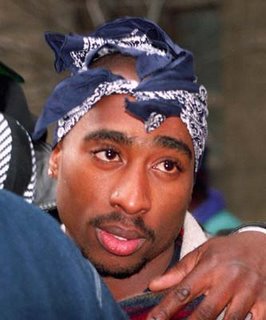By Mark Anthony Neal
As the Duke Lacrosse Rape Case unfolded in the spring of this year, it became a national obsession. Part of our fascination with the case was that it played to racial scripts that we have become all too complicit in maintaining—there remains no better drama in American life, than sex and violence across the color line. But once we step back across that color line and back to the comforts of our own segregated communities and institutions, we are suddenly met with silence and denial when confronted with the issue of sexual violence against black women and girls, particularly when its at the hands of black men and boys. Recent allegations of rape against students at Morehouse College, the historically black male college in Atlanta, by members of its sister school, Spelman College and the response by some “Morehouse Men” to those allegations, speaks volumes about just how far black communities need to go to take serious the threat that sexual violence poses to our communities.
That a rape might have occurred on the Morehouse or Spelman campuses is disturbing, but not unusual. As is the case at many other colleges and universities across the country, sexual assault can occur “early and often” during the new school year, as women students acclimate themselves to the physical landscape of their campuses and negotiate social scenes often predicated on alcohol consumption and the prevalence of a “hook-up” culture. Many of the Women’s Centers and the like on campuses are well aware of these trends—including the number of unreported date rapes that occur in this context—so it was perfectly normal that Spelman’s chapter of the Feminist Majority Leadership Alliance (FMLA) chose to speak out forcefully about the alleged rapes that occurred this month and the issues of sexual assault and violence in general.
In a statement Spelman College’s FMLA asserted that “Within the past two weeks two Spelman students have reported incidents of rape allegedly involving Morehouse students. As Spelman students we were outraged by this news and deeply saddened by the complacency surrounding the issue within the Atlanta University Center (AUC). We hear about such incidents several times a semester, through word of mouth and rumor. The facts are often misconstrued.”. The Atlanta Journal-Constitution reports on Wednesday September 20, 2006, that over 150 women participated in a march from Spelman’s campus to Morehouse, where they held a speak-out. The FMLA reports that the open forum contained “passionate and explosive opinions” on both sides.
Both sides? Well of course there were not any folks advocating for rape, but within black institutions that still value patriarchy and the “stability” it supposedly engenders , black women (and a few men) are often admonished for publicly criticizing and holding black men accountable for behavior that is clearly detrimental to our communities and our shared humanities. Members of the Morehouse College student senate, for example, introduced a bill condemning the Spelman College protest, arguing that said protest “created a hostile environment” and “encouraged bad press and character defamation to Morehouse College and its student body.” The senate also castigated the FMLA for apparently not asking their permission (“Morehouse College Student Government Association was not invited to assist in the planning of the protest”). In the final section of the bill, the Morehouse College student senate requested “a public apology from the Advisor(s) to FMLA (Feminist Majority Leaders Alliance), and student leadership of FMLA and all other organizers of the demonstration for its unruly nature”. The language of the bill was clear, the sanctity of the “body” of Morehouse College was more important than the bodies of black women—their sisters, friends, lovers, etc.—who are defiled in acts of rape and other forms of sexual violence.
To their credit, the Morehouse Men were savvy enough to issue a joint statement stating that they “stand firm against any act of sex that is not consensual—violent or nonviolent—that is forced upon any individual” and “stand firm behind victims--vocal or quiet--of this heinous transgression.” But such statements carry no weight if young men are unwilling to let women—the most likely victims of rape—the ability to express their own rage and concern on their own terms. As Spelman Professor William Jelani Cobb reports, the protesters were “taunted and jeered and only a handful of men were brave enough to join the protest”. Cobb adds, “Morehouse needs to respond to the intolerant reaction a number of their students had regarding the protest. That kind of behavior is absolutely unacceptable.”
Black men often think that they lack privilege, but that is in relation to the relative privilege of their white male peers. Their privilege, in relationship to black women is real and it is often the basis, particularly within elite black institutions, that black women are expected to serve the needs—politically, socially, emotionally and sexually—of black men. In many ways the reaction of some Morehouse men, to the Spelman FMLA protest, has to do with the willingness of those women to challenge the social contract between them. Until black men are willing to break ranks with their masculine privilege, any claims of support—heartfelt or not—will ring hollow.
***
Mark Anthony Neal is Associate Professor of African and African-American Studies at Duke University where he also serves as the Director of the Institute for Critical U.S. Studies.


